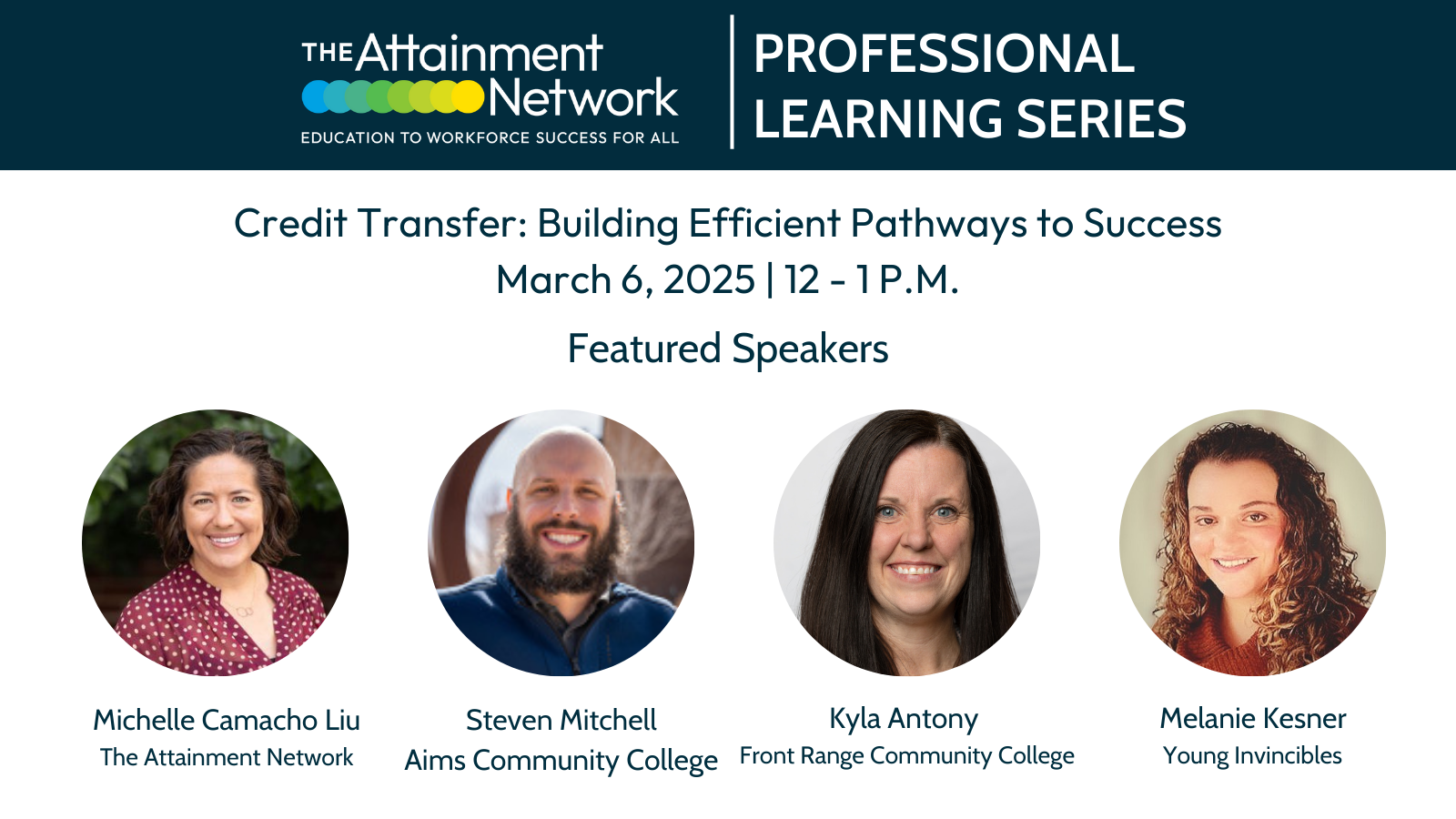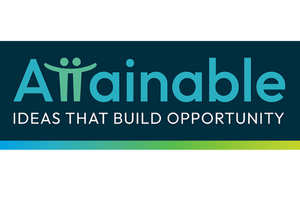Strengthening Credit Transfer for Colorado Learners
Innovations and Next Steps with Transfer Systems

We were thrilled to have more than 80 education and policy leaders join our Professional Learning Series last week to tackle one of the biggest challenges in higher education: credit transfer. When students lose credits in transfer, they lose time, money, and motivation – and too many never complete their education.
Many thanks to our partners at Aims Community College who joined us to showcase their successful AIMS2UNC program, and to our partners at Front Range Community College who highlighted their Ram Transfer Academy. We are also grateful to our partners at Young Invincibles and the learners who shared their experiences.
Here are some of the key takeaways:
Key Policy Updates
Colorado is making progress toward creating seamless credit transfer systems for all learners.
- Legislation passed last year enhanced the Student Bill of Rights to provide students with clear cost information, transparent transfer pathways, and timely credit evaluations. SB 24-164 also guarantees students the right to appeal transfer credit decisions and earn credit for prior learning.
- This year, the legislature is considering HB 25-1038, which would launch a centralized transfer website for students to see how courses, work experience, and prior learning will transfer across institutions – eliminating the guesswork.
Institutional Partnerships Making a Difference
Two Colorado initiatives are proving that strong leadership, collaboration, and intentionality can drive real change in transfer success.
🎓 AIMS2UNC: Aims Community College → University of Northern Colorado
- This partnership creates a structured pathway from Aims to UNC, ensuring students receive advising support from both institutions.
- AIMS2UNC students gain access to UNC resources, activities, and services before they even transfer.
- 80% of AIMS2UNC students are retained at UNC, and participants graduate sooner than students who start at UNC.
🎓 Ram Transfer Academy: Front Range Community College → Colorado State University
- FRCC students who are admitted to the Ram Transfer Academy are part of the CSU community, with access to campus services and activities like housing, advising, counseling, and athletics.
- A dedicated success coach and student success course help students transfer seamlessly without losing credits.
- Growth has been significant – from 11 students in Fall 2023 to 56 this spring, with a goal of 300 by 2026.
Student Voices: What Matters Most
A student panel facilitated by Young Invincibles underscored the real-life impact of transfer policies. Students shared what worked and where they struggled:
❌ Confusion over how credits transferred – many didn’t realize their credits would count as electives rather than requirements.
❌ Inconsistent advising – some advisors were proactive, but others were hard to reach.
✅ Success came from strong advising relationships, frequent check-ins, and accessible resources.
✅ Cultural competency matters – having advisors who understand students’ backgrounds helps them feel supported.
What’s Next?
Challenges remain in Colorado’s credit transfer systems, but as these partnerships show, real progress happens when institutions come together with a shared vision.
👉 Check out the session slides and recording for more insights
Thanks to everyone who joined us for this opportunity to learn together, and a special thanks to all our speakers, especially the learners who shared their experiences.
Don’t miss the next session in our Professional Learning Series! Join us for our April 17 discussion on expanding apprenticeship opportunities for all learners. Check out our full series here and register today!
We look forward to seeing you next time!
RECENT ARTICLES



